
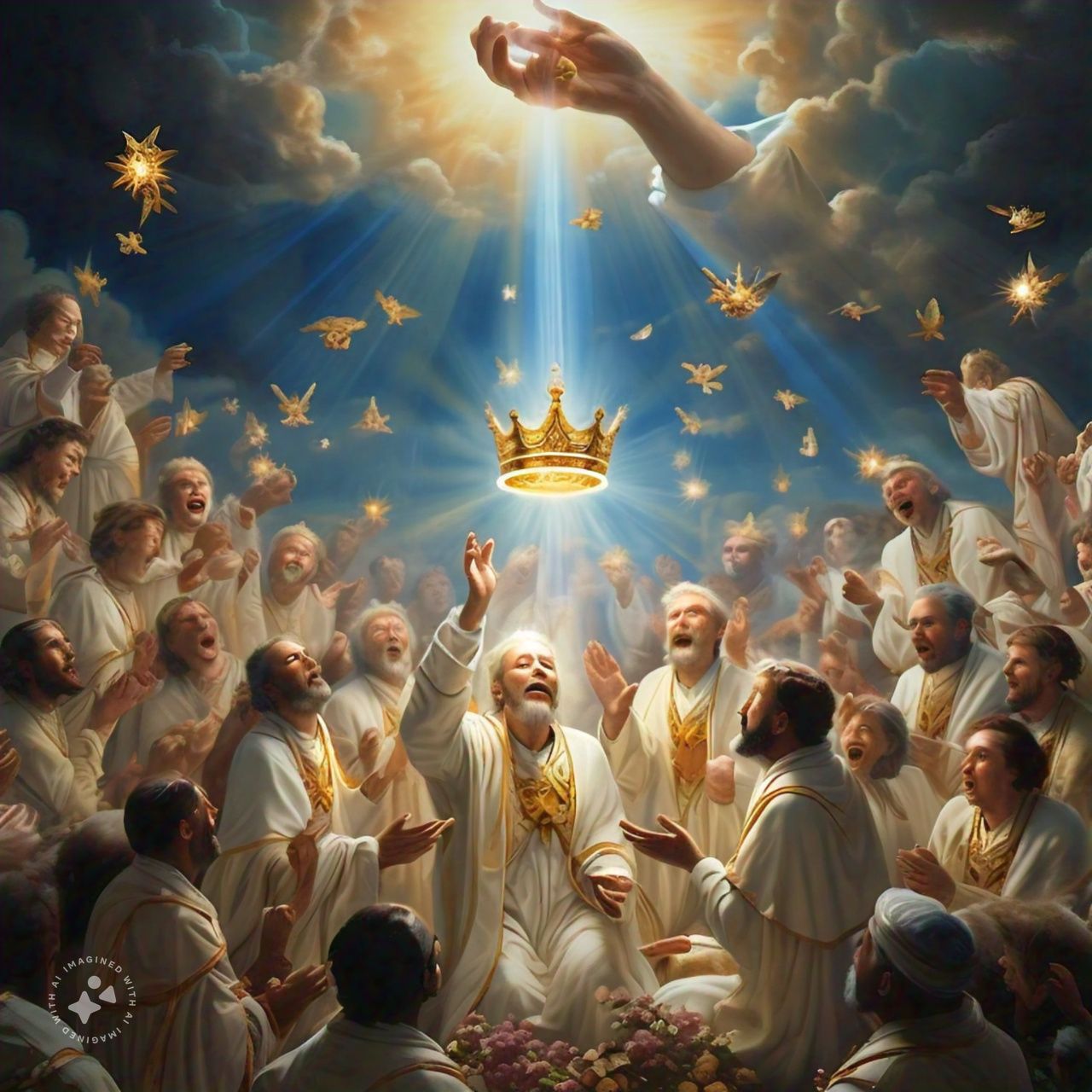





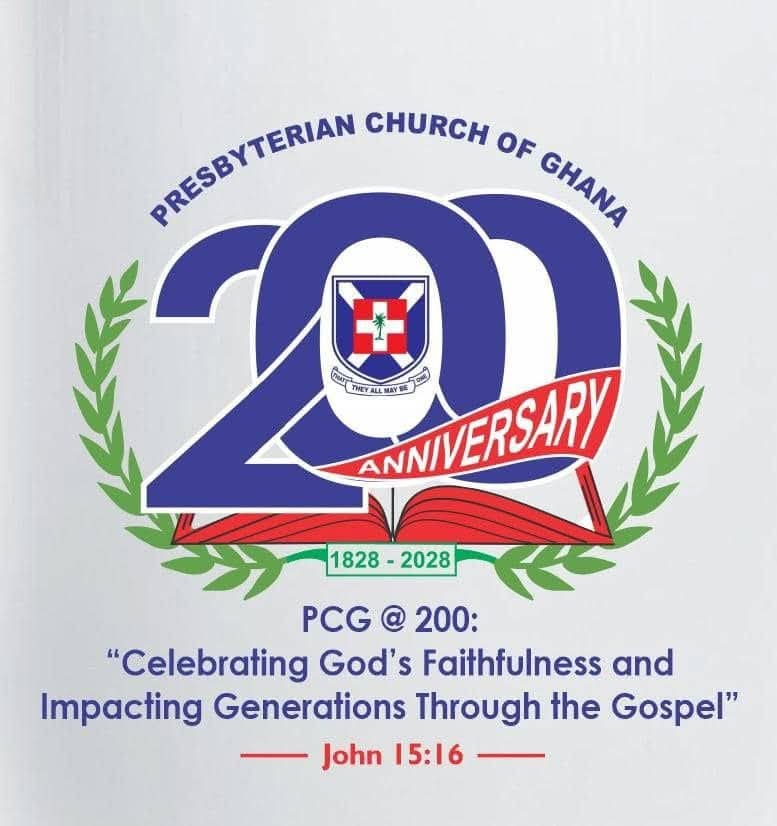


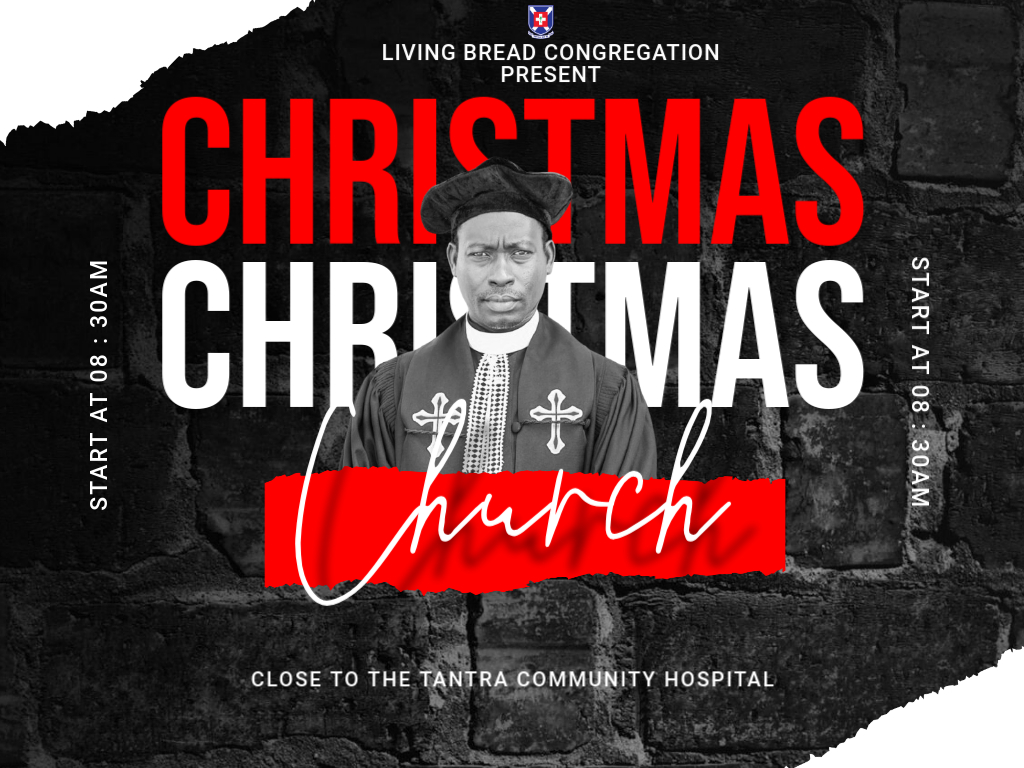
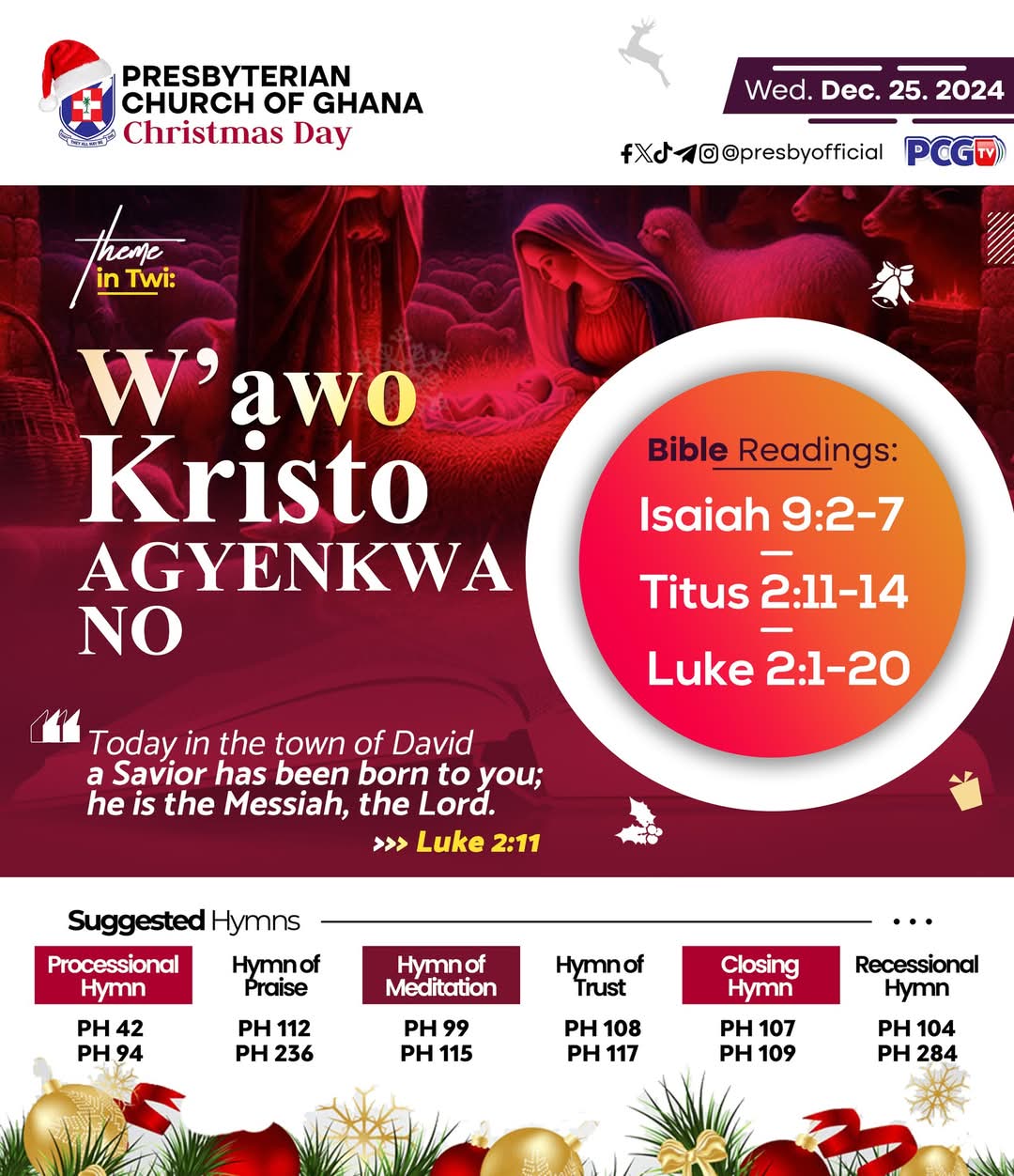





SERMON TITLE:
"PREPARE A WAY FOR THE LORD"
Scripture
References:
INTRODUCTION
We live in a world that is often rushed and chaotic, where preparation
sometimes feels like an afterthought. Yet, throughout Scripture, we see God
calling His people to prepare. Today, we reflect on this divine mandate to
"prepare a way for the Lord." This preparation is not just external;
it is an inward transformation of our hearts, aligning them with God's purposes
and promises.
As we journey through Isaiah, 2 Peter, and Mark, we’ll explore three key
dimensions of preparing for the Lord: comforting assurance, urgent
repentance, and the promise of restoration.
1. The Comfort of
God's Promise (Isaiah 40:1-5, 9-11)
Isaiah opens with a
message of comfort:
"Comfort, comfort my people, says your God." (Isaiah 40:1)
The context of this passage is one of hope in the midst of despair. God
speaks to a broken and exiled Israel, declaring that their hardship will not
last forever. The voice crying in the wilderness, calling for a straight path,
reminds us that God is faithful to His promises.
Application:
2. The Urgency of
Repentance (Mark 1:1-8)
John the Baptist's ministry was one of preparation. He proclaimed, “Prepare
the way for the Lord, make straight paths for Him.” (Mark 1:3) His message
was not complicated but deeply convicting: repentance. John’s call to
baptism symbolized a turning away from sin and a readiness for the coming
Messiah.
John's humility is also striking: “I baptize you with water, but He
will baptize you with the Holy Spirit.” (Mark 1:8) He understood that
preparation involved pointing beyond himself to the greater work of Christ.
Application:
3. The Promise of
Restoration and Holiness (2 Peter 3:8-14)
In 2 Peter, we are reminded of God's perspective on time: “With the
Lord a day is like a thousand years, and a thousand years are like a day.”
(2 Peter 3:8) This passage urges us to live with an eternal perspective. While
we wait for the Lord's return, we are called to pursue holy and godly lives.
The "day of the Lord" will come unexpectedly, like a thief.
This should not cause fear but inspire urgency in our preparation. God's
patience is an opportunity for repentance, as He desires for none to perish but
for all to come to salvation.
Application:

Conclusion: A Call
to Action
The call to "prepare a way for the Lord" is a call to both personal
transformation and communal responsibility.
As Isaiah proclaims, “The glory of the Lord will be revealed, and all
people will see it together.” (Isaiah 40:5) This is our hope and our joy.
Let us prepare the way, for the Lord is coming—both now into our hearts and
ultimately in His triumphant return.
Closing Prayer:
Heavenly Father, we thank You for Your Word that calls us to prepare for
Your coming. Help us to receive Your comfort, turn from our sins, and live in
holiness as we anticipate Your glory. May our lives be a reflection of Your
grace and a testimony of Your faithfulness. In Jesus’ name, Amen.
Apostle Creed
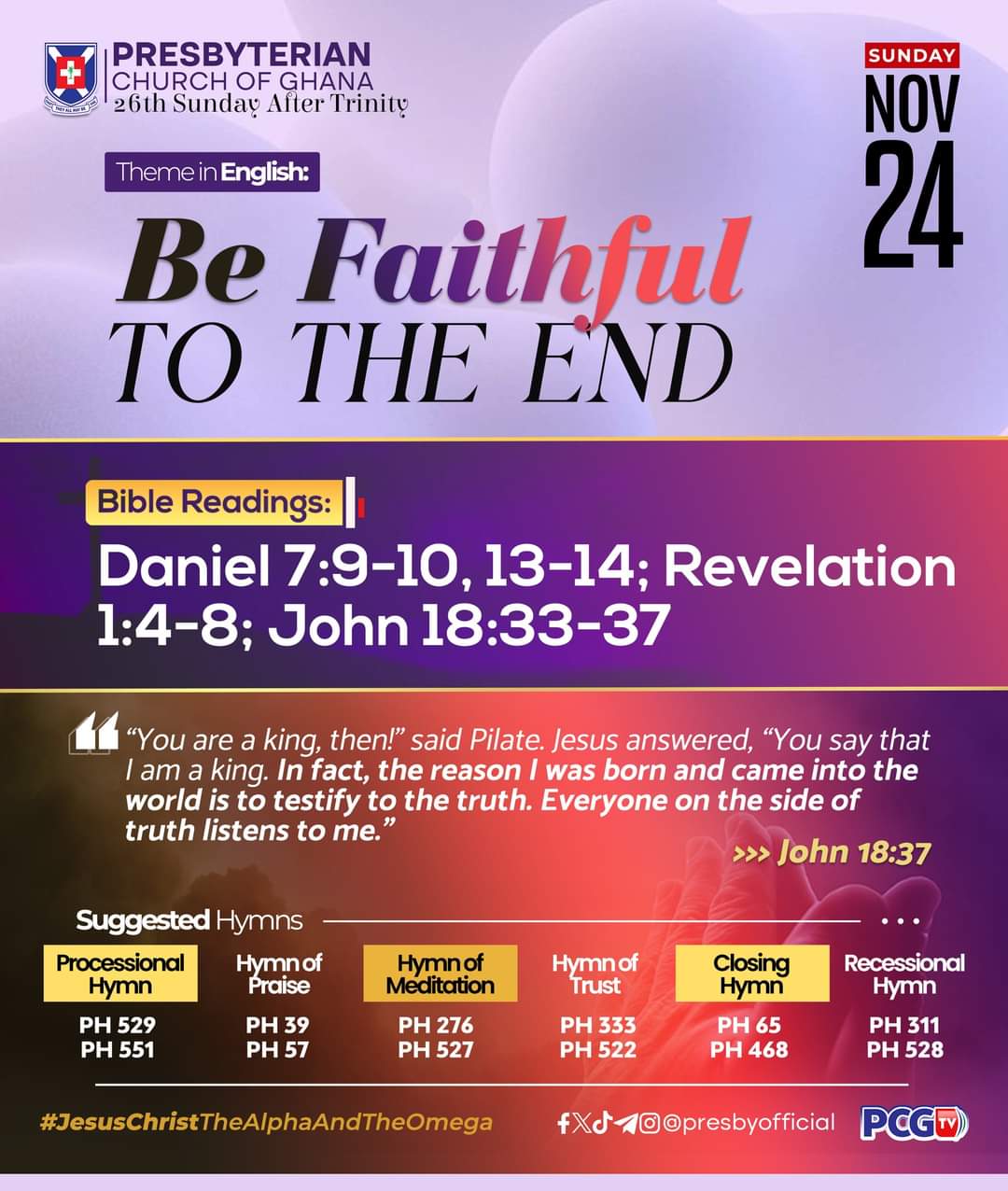

Sermonette
on 17 November 2024AD
Presbyterian
Church of Ghana, Living Bread Congregation-Tantra Hill
THEME:
READINESS FOR THE LORD'S COMING
BIBLE
READINGS
Daniel
12:1-3, Hebrews 10:11-25, and Mark 13:1-8
Introduction
The
theme for our reflection is "Readiness for the Lord's Coming." The
Bible consistently emphasizes the reality of Christ's return and the call for
believers to live in anticipation of that great day. The question we are faced
with is this: *Are we ready?* Our Scripture passages today, Daniel 12:1-3,
Hebrews 10:11-25, and Mark 13:1-8, invite us to explore what it means to be
prepared for the Lord’s return, how we should live in light of this truth, and
how these ancient words still speak to us in our 21st-century context.
1.
STANDING FIRM IN TROUBLING TIMES (DANIEL 12:1-3)
Daniel
12:1-3 paints a picture of a time of great distress, one unlike any the world
has seen before. The prophet Daniel speaks of a period of turmoil and
suffering, yet he also provides a word of hope: "At that time Michael, the
great prince who protects your people, will arise." Despite the coming
trials, those whose names are found in the book of life will be delivered. In
this passage, we also see the promise of resurrection some to everlasting life,
others to shame.
This
ancient prophecy has a modern-day relevance. We live in a world where natural
disasters, wars, and political unrest are ever-present realities. In the 21st
century, believers are not exempt from the pressures of a turbulent world. Yet,
the call remains for us to stand firm, knowing that God’s deliverance is
certain. Readiness for the Lord’s coming involves cultivating a life of
perseverance and hope, even in the midst of trials. Our faith should not be
shaken by the turmoil around us but should deepen as we anticipate the
fulfillment of God’s promises.
2.
ENCOURAGING ONE ANOTHER IN FAITH (HEBREWS 10:11-25)
In
Hebrews 10:11-25, the writer emphasizes the finality and sufficiency of
Christ's sacrifice. Unlike the repeated offerings of the Old Testament priests,
Jesus' sacrifice was once and for all. This assurance is meant to embolden us
as we "draw near to God with a sincere heart and with the full assurance
that faith brings" (v. 22). The passage encourages us to hold unswervingly
to the hope we profess because "He who promised is faithful."
One
of the key instructions in this passage is to encourage one another "not
giving up meeting together, as some are in the habit of doing, but encouraging
one another and all the more as you see the Day approaching" (v. 25). In a
21st-century context, with the rise of individualism and the challenges brought
by technology, we might be tempted to isolate ourselves or treat faith as a
private affair. However, readiness for the Lord’s coming involves intentional
community and mutual encouragement. We need each other to stay strong in faith,
to remind one another of the hope we have in Christ, and to live out our faith
through acts of love and service.

3.
DISCERNING THE SIGNS OF THE TIMES (MARK 13:1-8)
In
Mark 13:1-8, Jesus speaks of the signs of the end times wars, rumors of wars,
earthquakes, and famines. He warns the disciples not to be alarmed or misled by
these events, for they are only the beginning of birth pains. The key takeaway
from this passage is vigilance and discernment. Jesus calls His followers to be
alert, to understand the times, and to remain steadfast.
In
today’s world, we are constantly bombarded with information, predictions, and
theories about the end times. News cycles, social media, and sensational
reports can easily create anxiety and confusion. But readiness for the Lord’s
coming calls for a different response. Instead of being overwhelmed or fearful,
we are called to stay rooted in God’s Word, discerning the truth amidst the
noise. Jesus’ instructions are clear: do not be deceived, and do not be afraid.
This kind of spiritual vigilance is crucial for the 21st-century believer who
faces many distractions and competing narratives.
APPLICATION
HOW
TO BE READY FOR THE LORD’S COMING TODAY
1. STAY
GROUNDED IN SCRIPTURE AND PRAYER: In a world filled with uncertainty, our
anchor is God’s unchanging Word. Spend time daily in Scripture and in prayer,
seeking to understand God's will and preparing your heart for His return. This
spiritual discipline is the foundation of readiness.
2. LIVE
A LIFE OF HOLINESS AND INTEGRITY: Readiness for the Lord's coming means living
a life that honors Him. Our choices, actions, and words should reflect the
character of Christ. We are called to be "the light of the world" in
our workplaces, schools, and communities.
3. ENGAGE
IN COMMUNITY: Encourage and be encouraged by fellow believers. Do not neglect
gathering together for worship, Bible study, and fellowship. The Church is the
body of Christ, and we grow stronger in faith when we support each other. In
the 21st century, this might also mean making the most of technology to stay
connected and uplift one another in times when physical gatherings are not
possible.
4. SHARE
THE GOSPEL BOLDLY: The reality of Christ’s return should inspire us to share
the hope of the Gospel with urgency. In a society where many are searching for
answers in all the wrong places, let us point them to the One who holds the
future. Whether through personal conversations, social media, or involvement in
community outreach, be a witness to the hope found in Jesus.
5. DEVELOP
A DISCERNING HEART: Equip yourself to discern the times. Not every event or
crisis is an indication of the end, but every moment is an opportunity to grow
closer to God. Let your discernment be guided by Scripture, not sensationalism.
Keep your eyes on Jesus and be vigilant in prayer, always asking for wisdom and
understanding.
6. CULTIVATE
A SPIRIT OF READINESS AND EXPECTANCY: Live each day as if the Lord’s return
could be today. This doesn’t mean neglecting your daily responsibilities, but
it does mean living with purpose, urgency, and anticipation. Allow the hope of
Christ’s return to shape your decisions and priorities.

CONCLUSION
Readiness
for the Lord’s coming is not just about waiting; it’s about living actively and
purposefully. Daniel’s prophecy of perseverance, the exhortation to communal
faithfulness in Hebrews, and Jesus’ call to vigilance in Mark all remind us
that readiness involves a steadfast faith, a hopeful community, and a
discerning spirit. In the 21st century, let us be people who embody these
truths, standing firm amidst challenges, encouraging one another, and remaining
alert to the signs of God’s work around us. May we live each day with the
expectation of His return, fully prepared and fully surrendered to His will.
Amen.
Let's Pray
APOSTLE
CREED
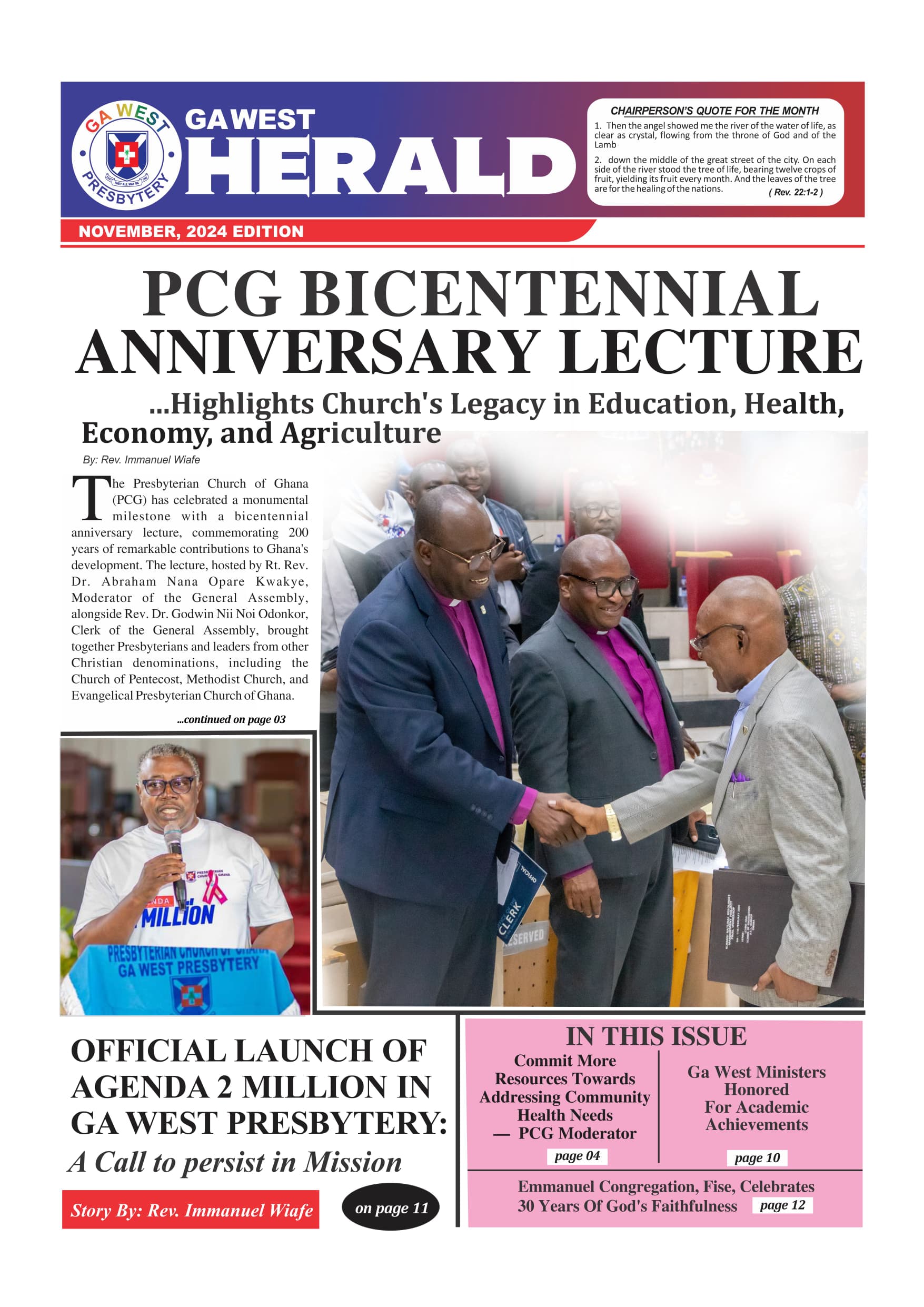
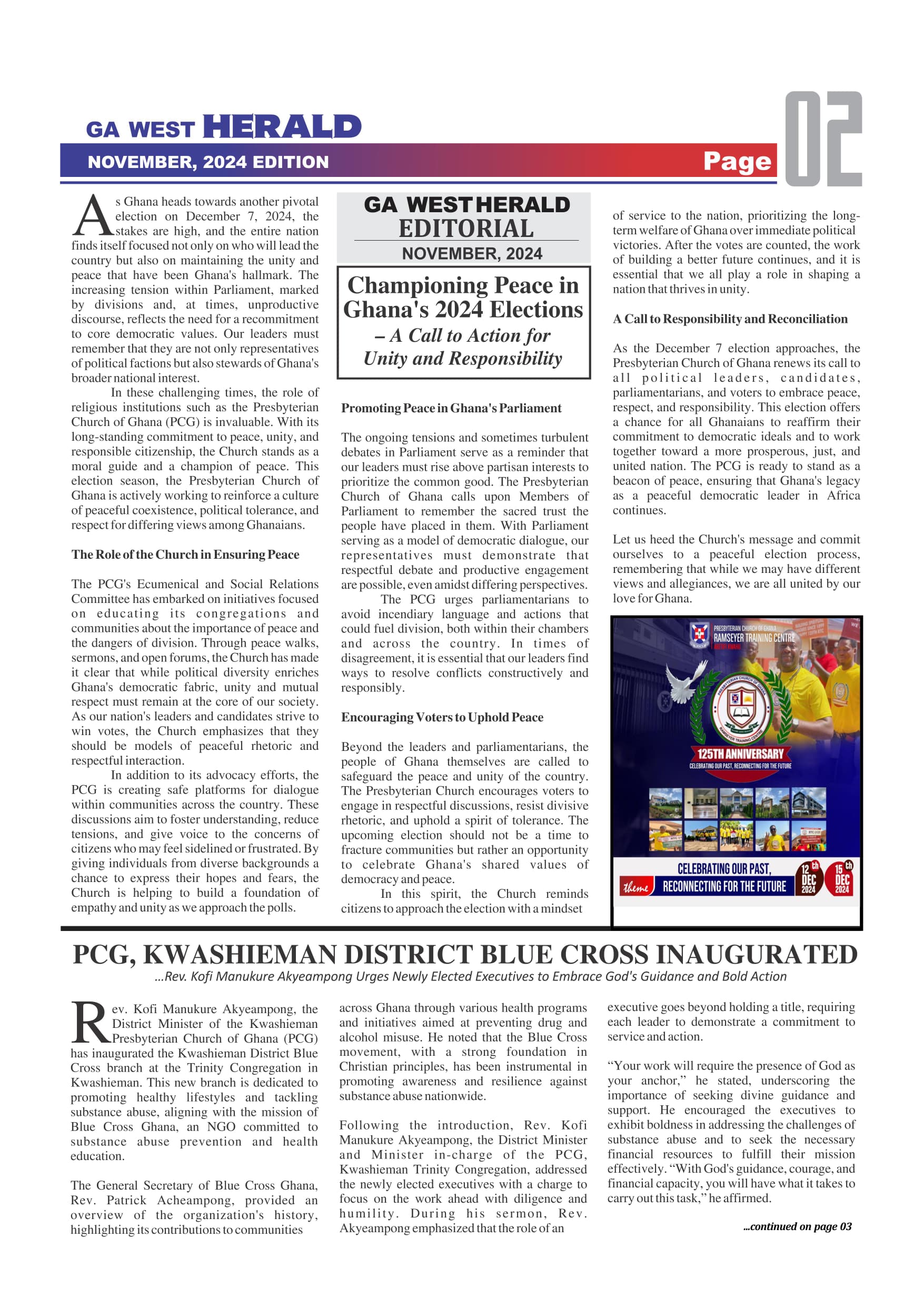
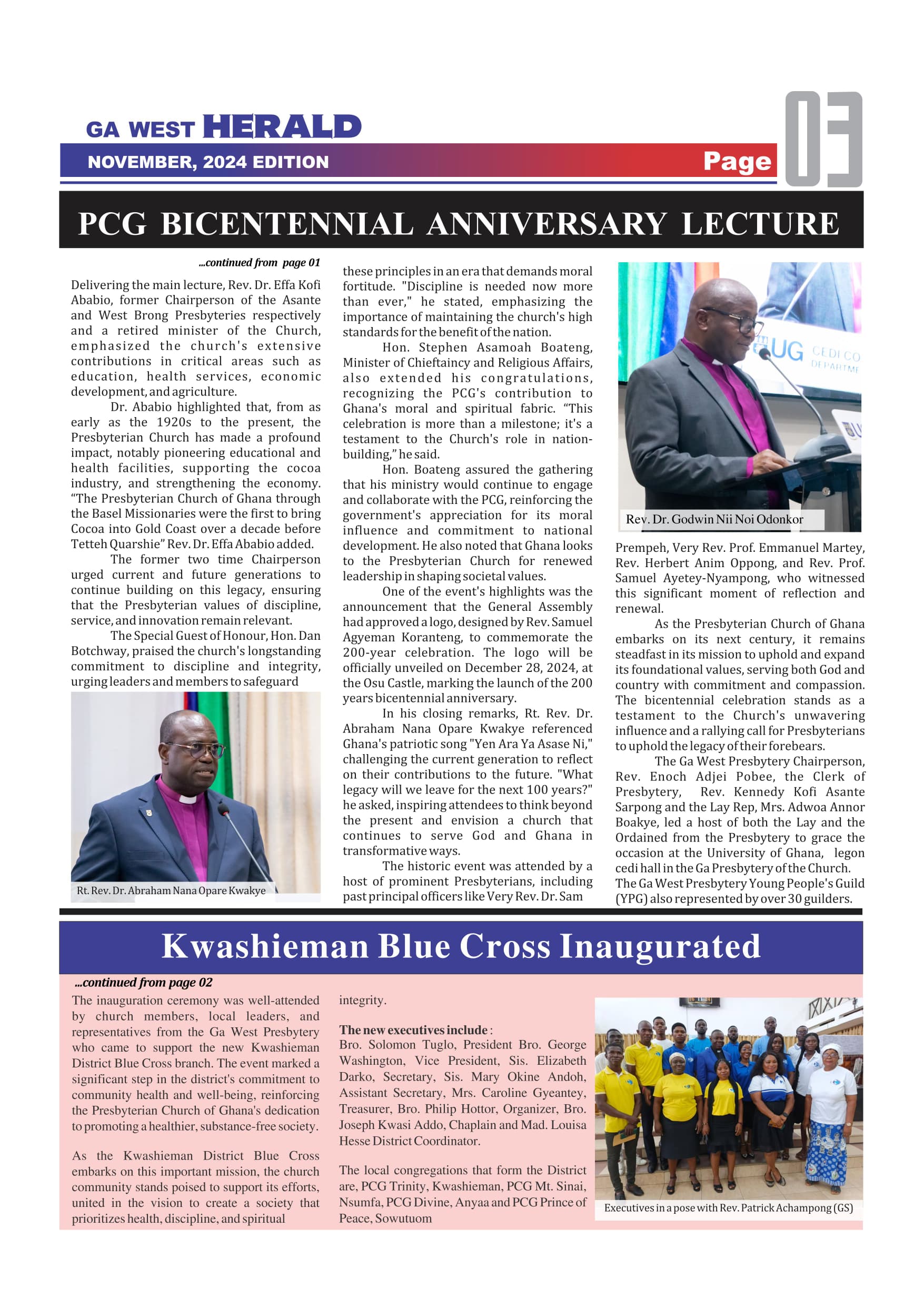
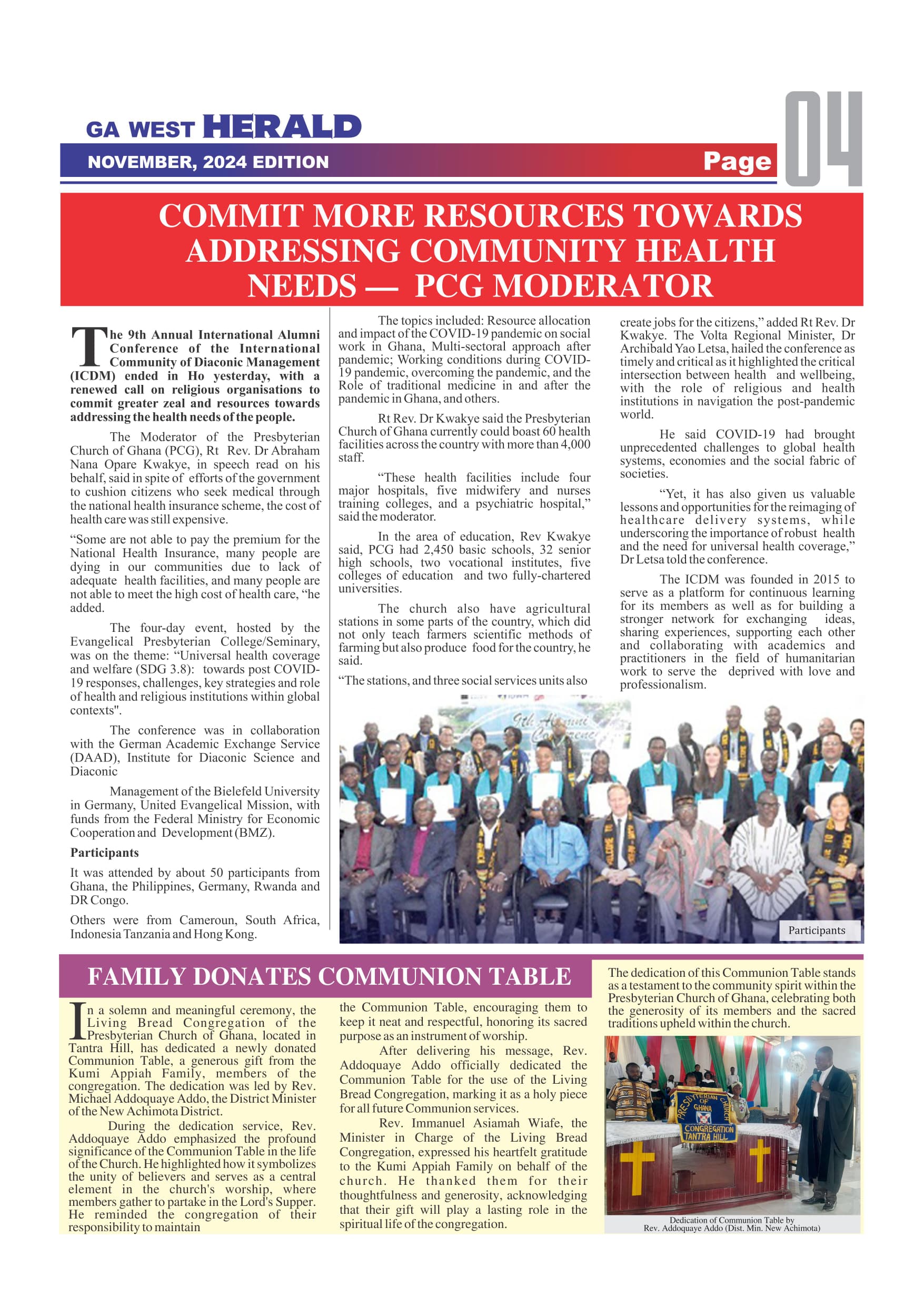
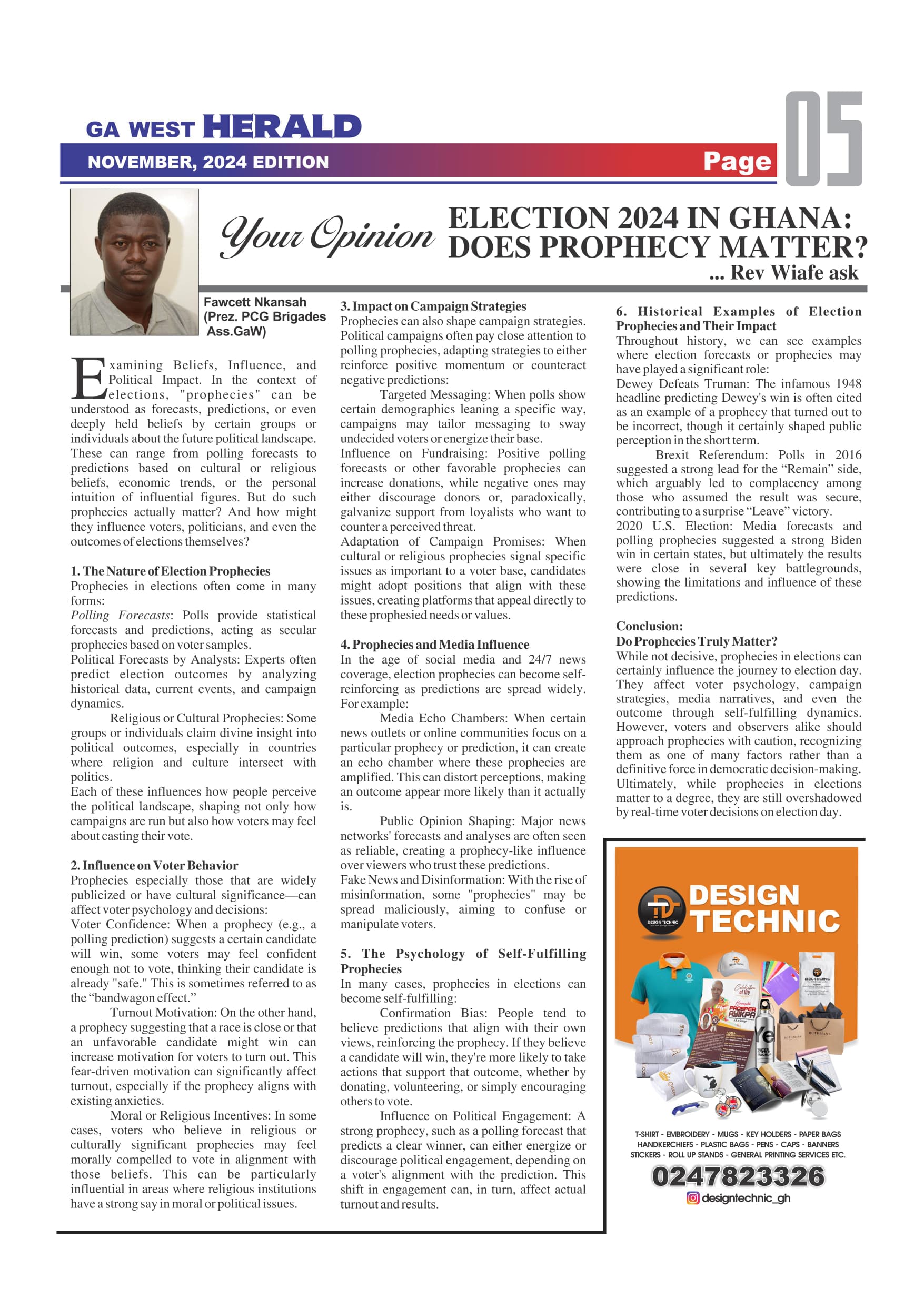
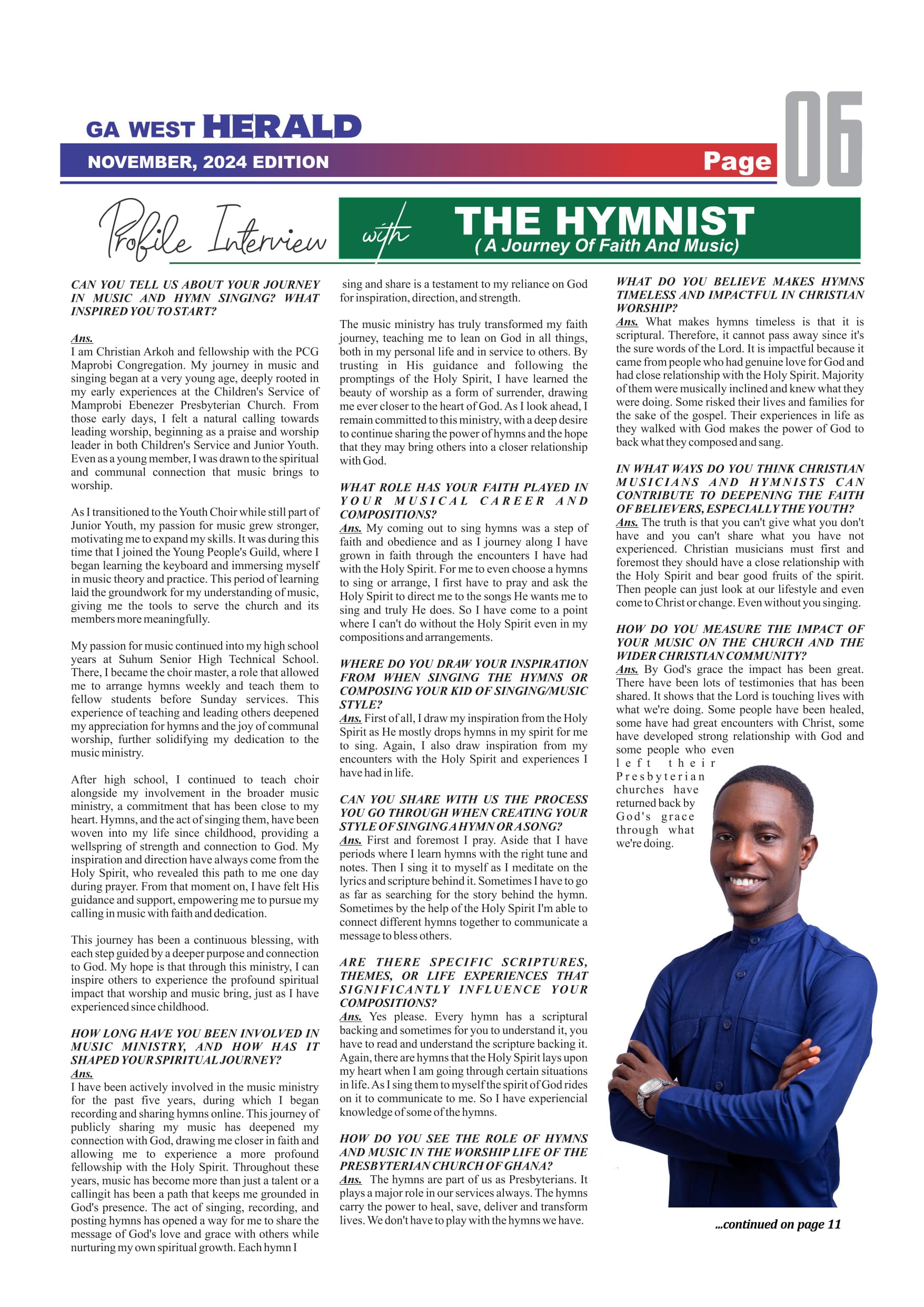
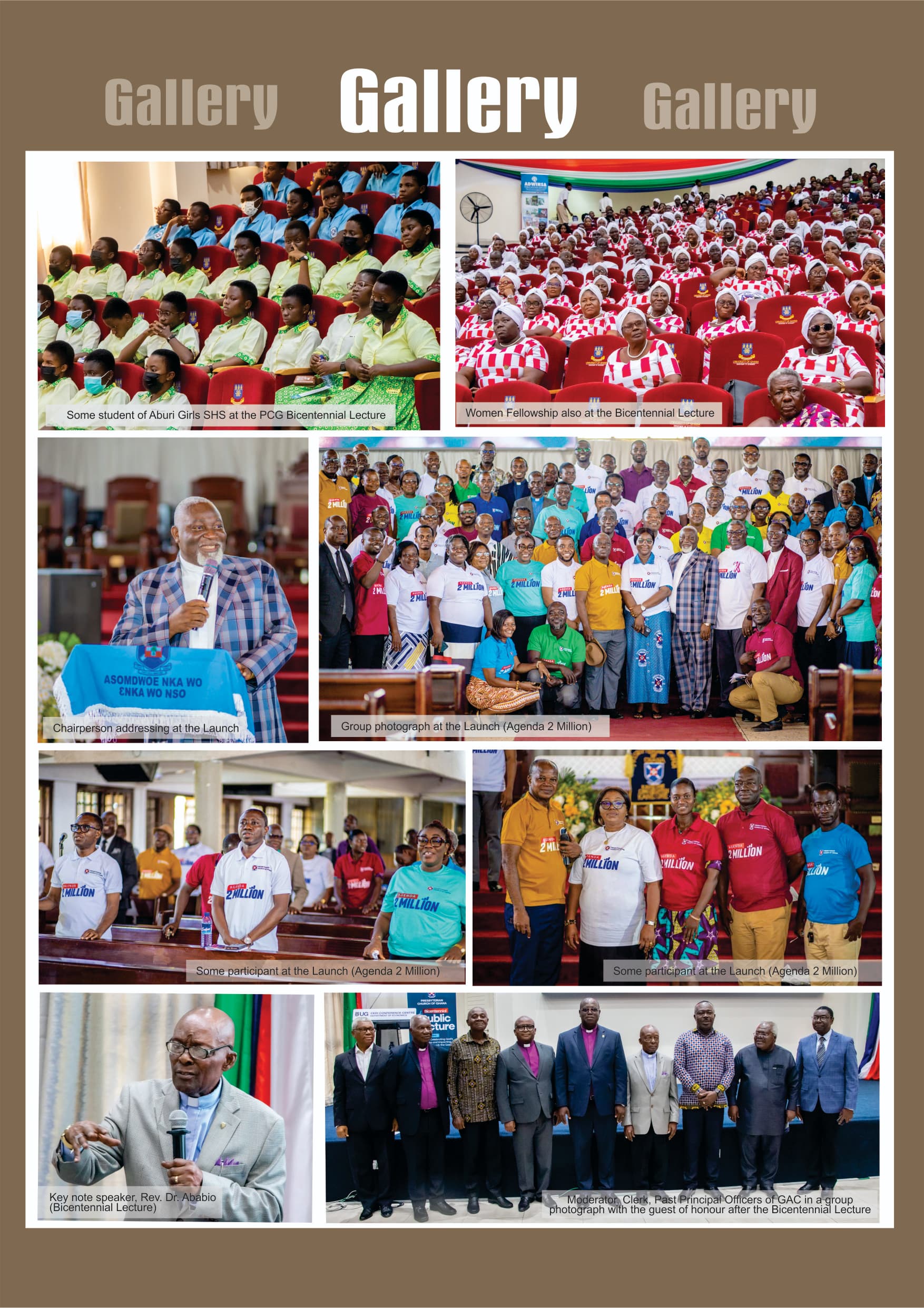
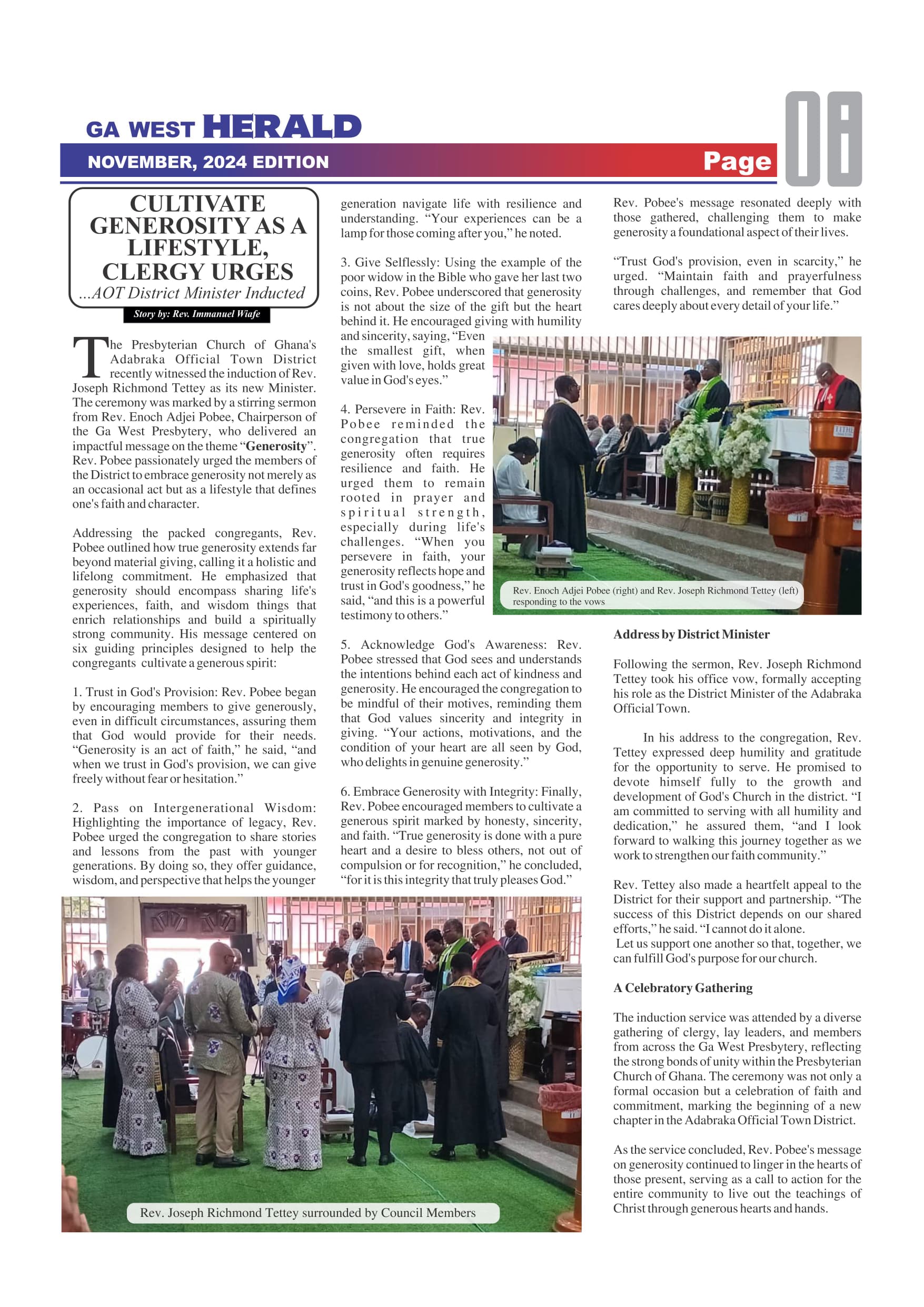
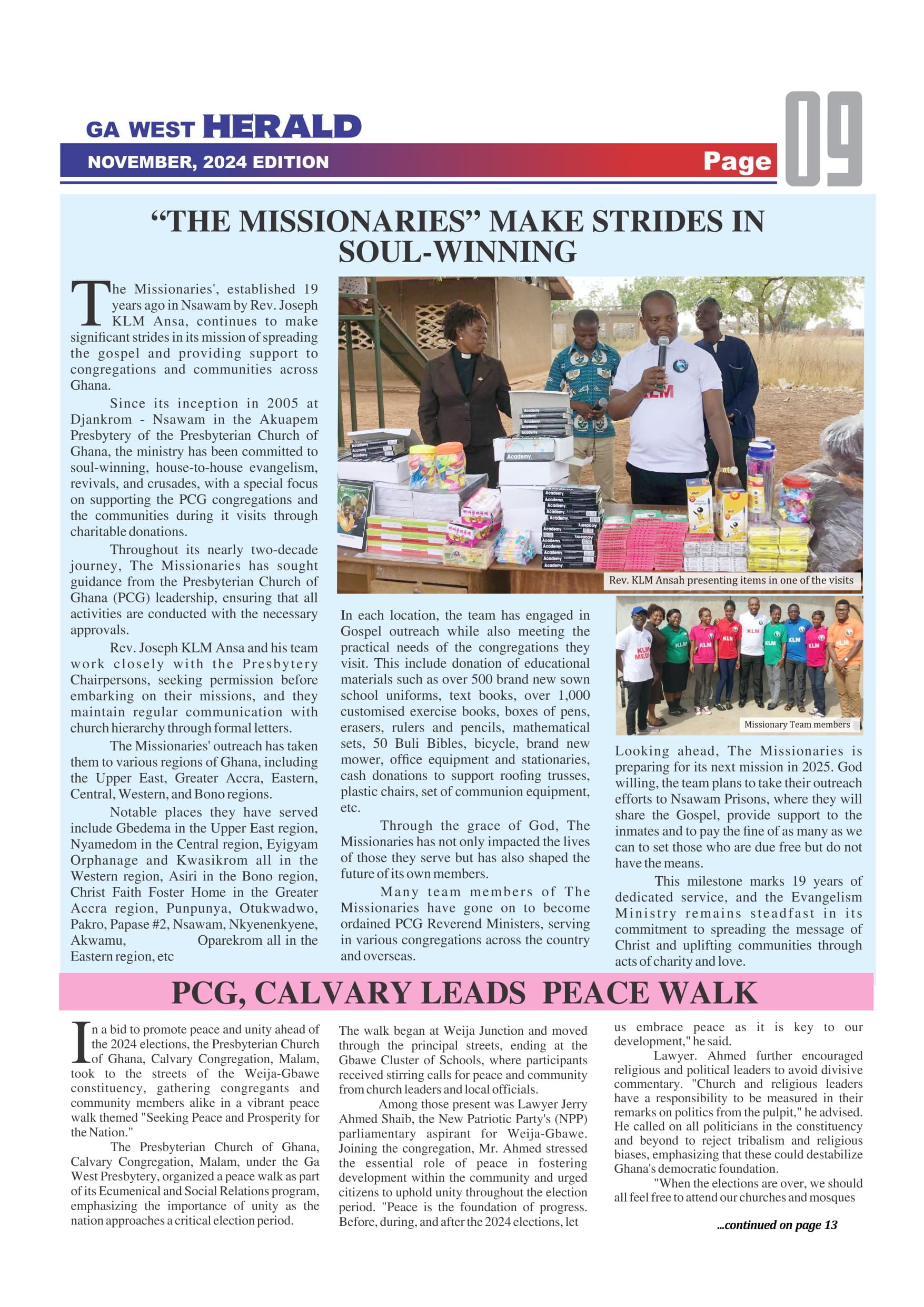
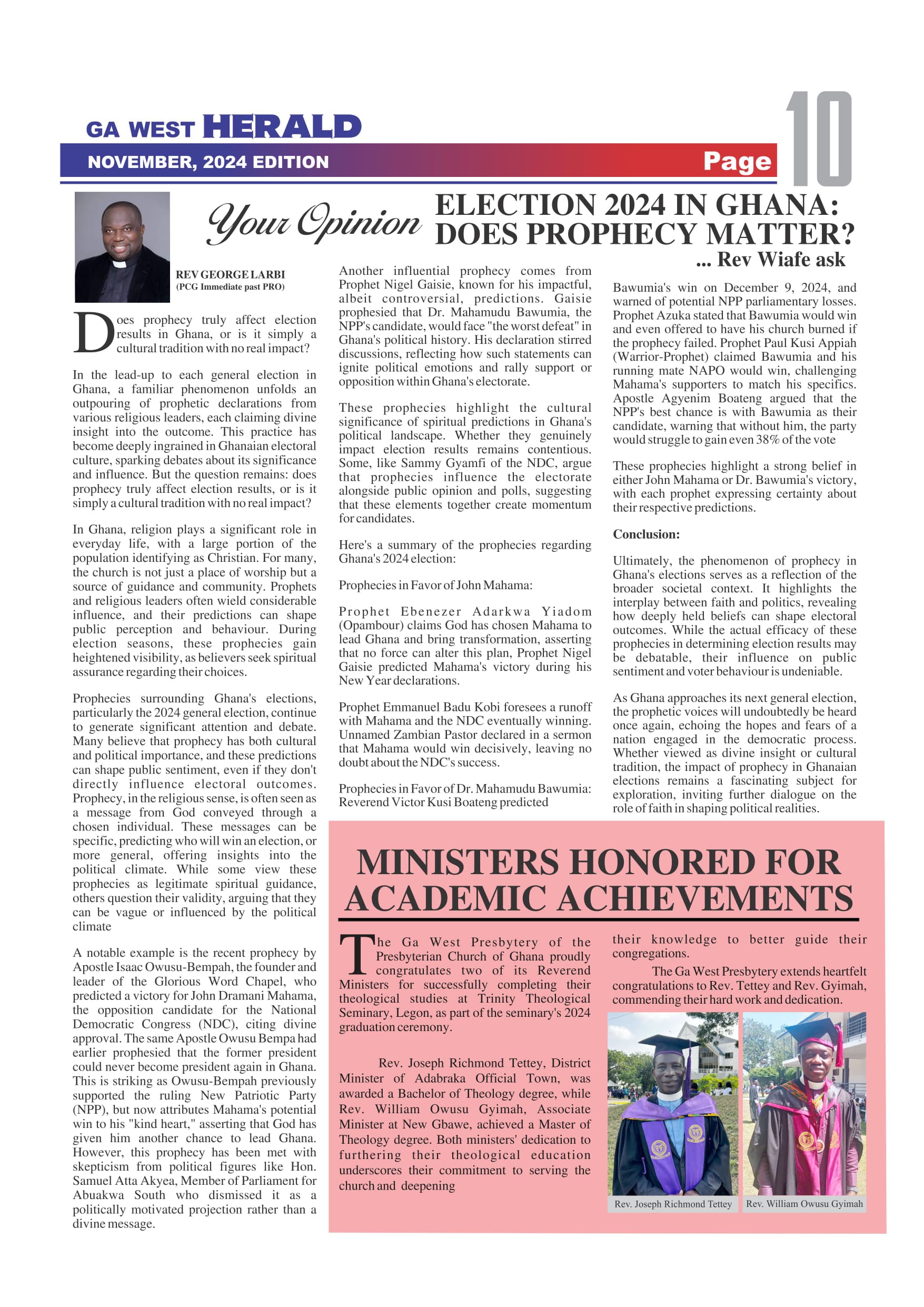
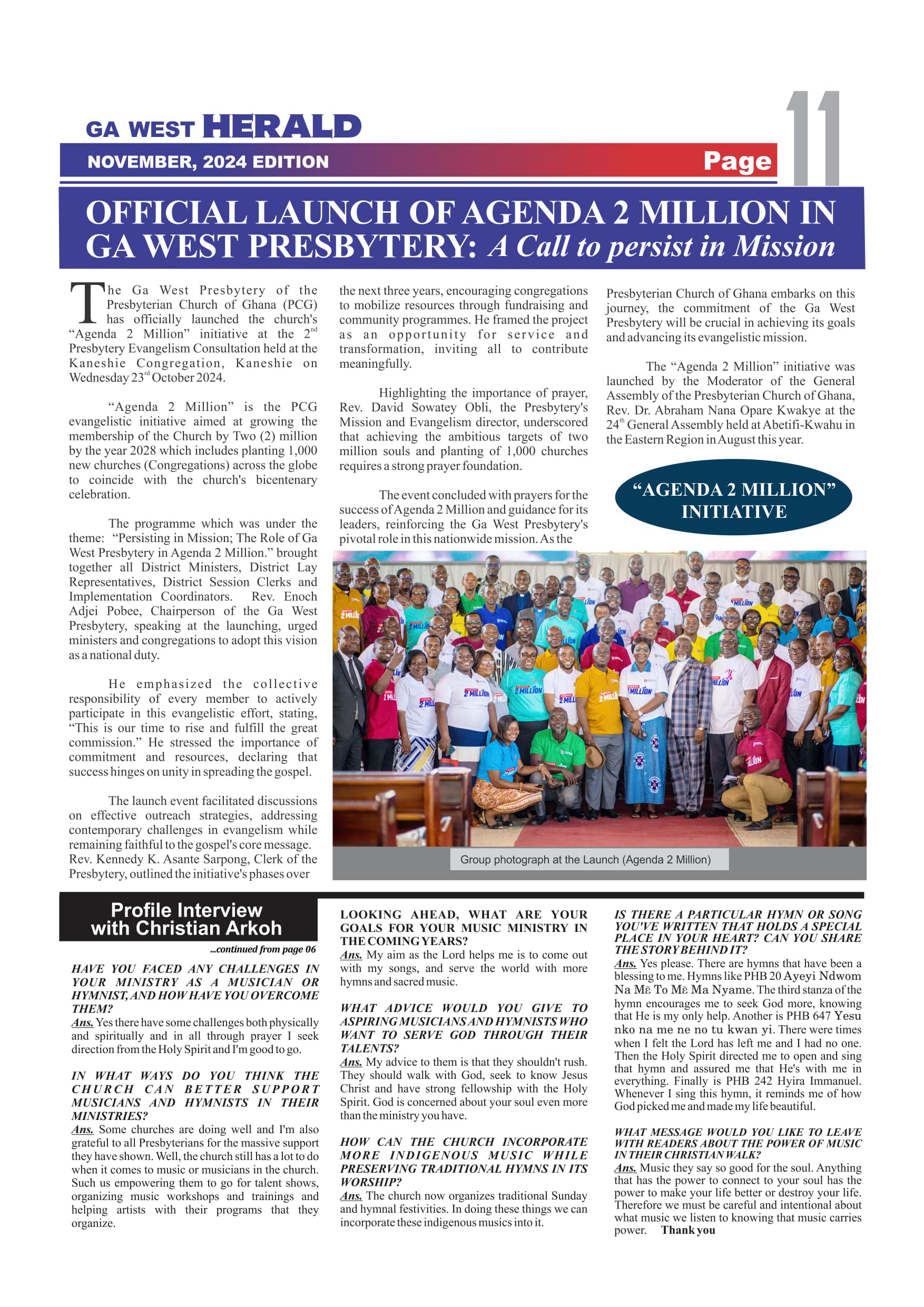
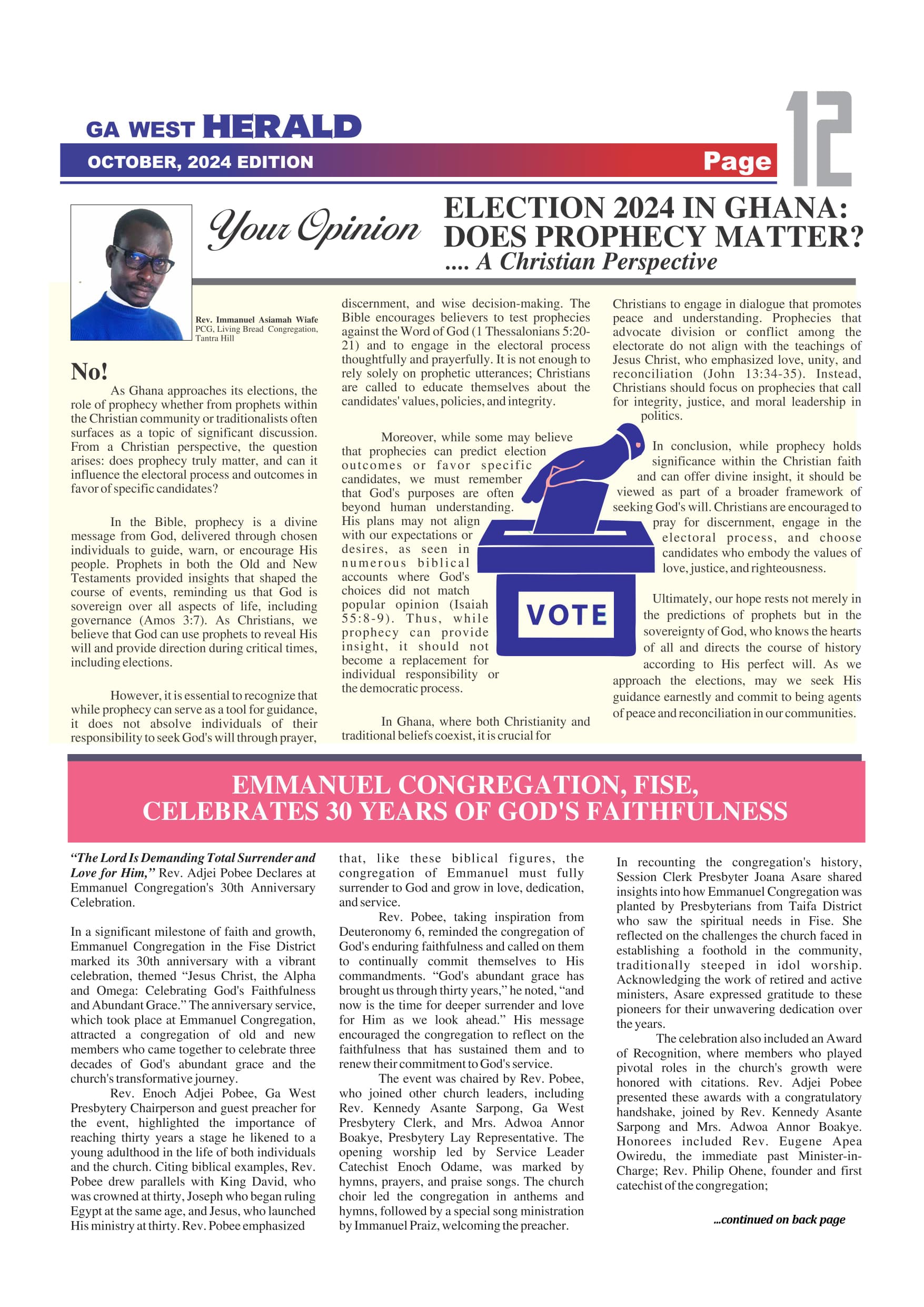
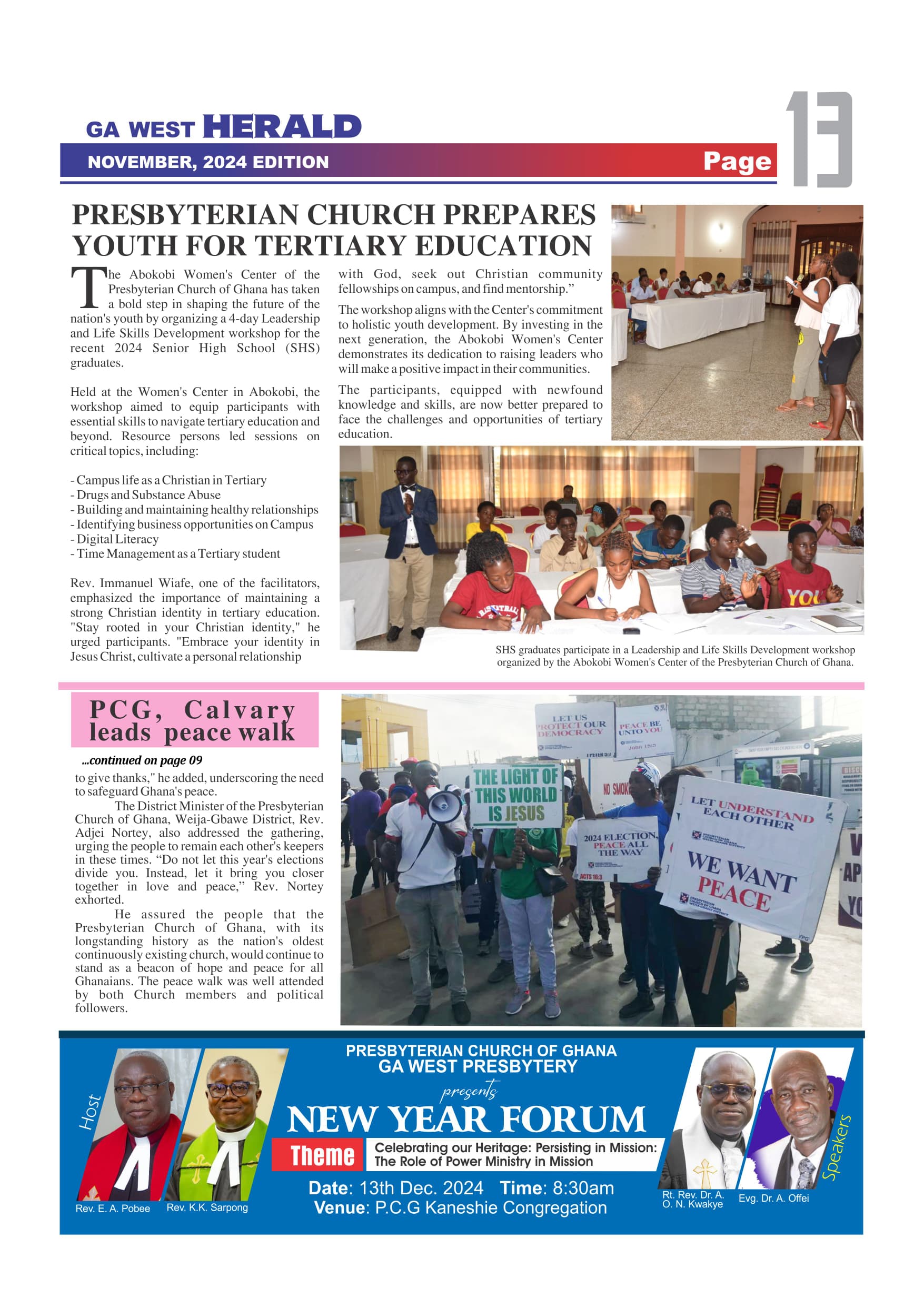
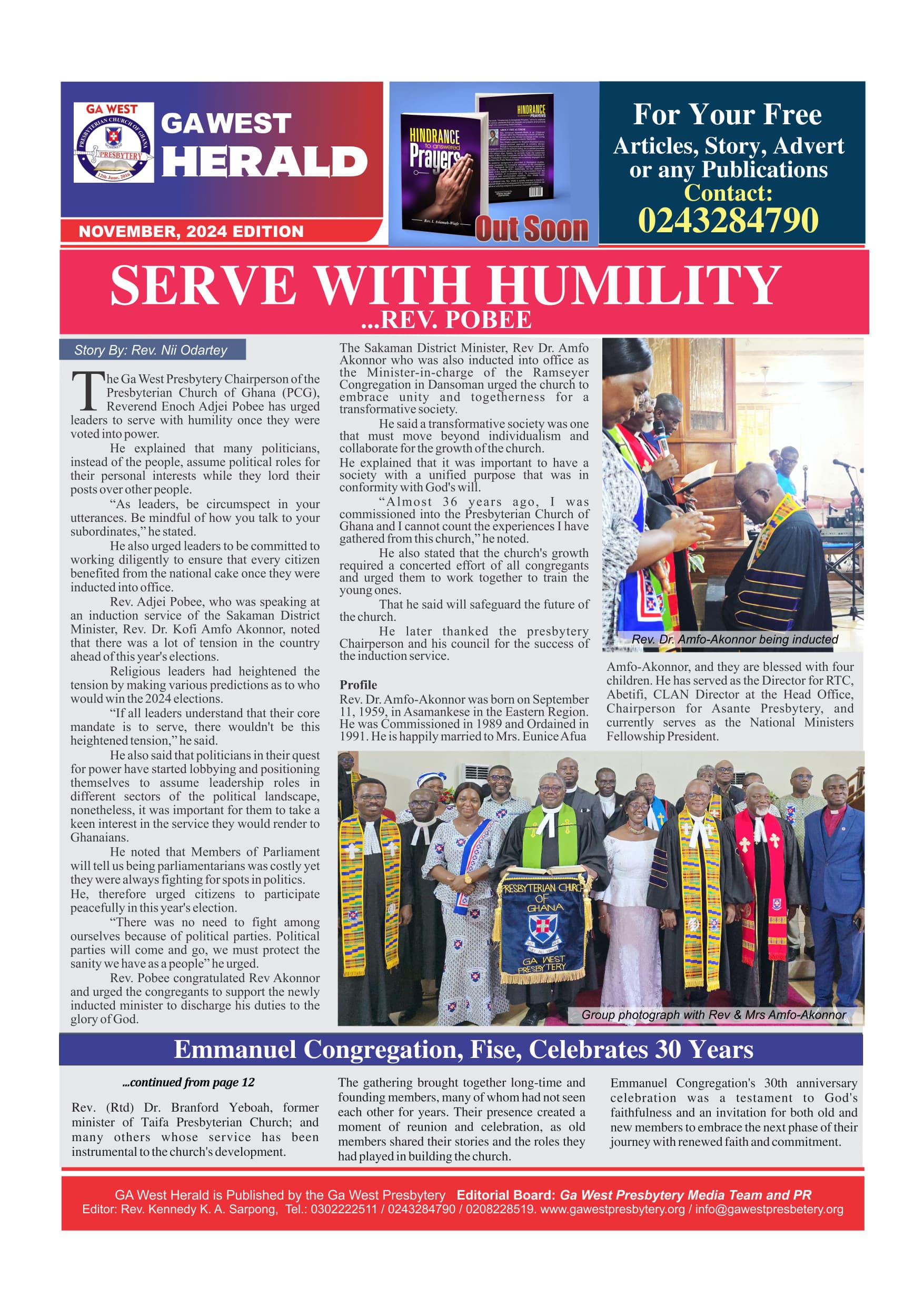






EXHORTATION FOR NOVEMBER
"RENEWED STRENGTH FOR THE FINAL STRETCH”
Scripture
Text:
Deuteronomy
1:3 – “In the fortieth year, on the first day of the eleventh month, Moses
proclaimed to the Israelites all that the Lord had commanded him concerning
them.”
EXHORTATION
As
we enter the eleventh month, November, let’s reflect on the journey so far this
year. In Deuteronomy 1:3, the people of Israel are reminded that they are in
the final stretch of a long journey. God instructs Moses to speak to them in
the eleventh month, reminding them of His promises and commandments,
encouraging them to keep going despite the challenges.
For
us, November can be a season to pause, refocus, and find strength
for the remaining weeks of the year. Like Israel, we may have faced
difficulties or setbacks, but God is faithful. He who brought us this far will
carry us through to the finish line. Let us renew our commitment to God’s
purpose, seek His guidance for the rest of the journey, and prepare our hearts
for the blessings that lie ahead.
In
the month November, let us stand firm in faith, knowing that God has a plan and
a purpose for each of us. His grace will sustain us, His wisdom will guide us,
and His promises will encourage us.
Prayer
Topics
1.
Thanksgiving for God’s Guidance and Provision:
Pray and thank God for His faithfulness
throughout the year and for the strength He has given us to reach this point.
2.
Renewed Strength for the Final Weeks of the Year:
Ask God for renewed physical, emotional, and
spiritual strength to finish the year strong, trusting in His sustaining grace.
3.
Reflection and Repentance:
Pray for a spirit of humility, asking God to
reveal areas in our lives where we need growth or correction. Seek forgiveness
for any mistakes and renewed commitment.
4.
Guidance for the Coming Year:
Pray for wisdom, clarity, and discernment as
we prepare for the coming year, asking God to lead us according to His purpose.
5.
Encouragement for Those Facing Challenges:
Lift up those who may feel weary or
discouraged, praying for God’s encouragement and that He will renew their hope
and faith.
May
November be a month where we press forward with renewed faith and strength,
trusting that God will complete the good work He has started in us.
-------‐----------------++++++++++++++++++-------------------

In
the Bible, the number 11 often represents a time of incompleteness,
disorder, or transition, leading towards fulfillment or alignment with God’s
purposes. It signifies a period just before divine order, as the number
12 symbolizes completeness, especially in government or divine authority (like
the 12 tribes of Israel or the 12 apostles).
The
number 11 appears in contexts that often highlight disorder or the need for
alignment. For example:
1.
Incompleteness:
After Judas’ betrayal and death, there were only 11 apostles left, signifying
an incomplete group until they chose Matthias to restore the order to 12 (Acts
1:15-26).
2.
Time of Transition or Preparation: In Deuteronomy 1:2, the Israelites took
11 days to travel from Mount Horeb to Kadesh Barnea on the border of the
Promised Land. This period of 11 days represents a transition phase as they
prepared to enter a place of divine promise and purpose.
3.
Awaiting Fulfillment: In 1 Kings 6:38, Solomon completed the temple in the
eleventh year, marking a period of waiting before reaching completion in
alignment with God’s specifications.
Thus,
the number 11 in the Bible can symbolize times when God's people are in a
period of waiting or transformation, just before the arrival of fullness or
divine completion.

SERMON THEME
THE UNCHANGING GOD IS OUR HOPE AND ANCHOR: OUR YEAR OF ABUNDANCE IN GIVING
Scripture Readings:
Jeremiah 31:7-9,
Hebrews 7:23-28,
Mark 10:46-52
Introduction
As we enter this season of abundance in giving, we recognize that our calling
is not only to receive but to become channels of blessing. Our theme, “The
Unchanging God is Our Hope and Anchor: Our Year of Abundance in Giving,”
invites us to find our strength and security in God’s eternal nature and to
respond in gratitude by giving generously. In today’s readings, we find
reminders of God’s unchanging character and His call for us to be transformed
by His generosity. These passages reveal that our unchanging God is the source
of our hope and that, rooted in this hope, we are called to be people who give
abundantly.

GOD’S PROMISE OF
RESTORATION AND ABUNDANCE (JEREMIAH 31:7-9)
Jeremiah speaks to a people in exile,
offering words of comfort and hope. God’s promise to restore Israel is filled
with abundant blessings: He will bring them back, gather them from all places,
and lead them with compassion. This image of a restored, fruitful people
reminds us that God is not limited by our circumstances. He is a God of
unchanging love who provides and protects, no matter where we are.
God’s Abundant Provision: In times of uncertainty,
we can find hope in knowing that God’s desire is not only to restore but to
bless us with abundance. His promises assure us that He has the power to
transform scarcity into abundance.
Application
As we place our hope in God, we can
freely give from what He has provided, knowing that He is our source and
sustainer. This Day of giving is an opportunity to reflect God’s unchanging
love through our actions, becoming agents of His abundant blessings to others.
JESUS, OUR ETERNAL HIGH
PRIEST AND ANCHOR (HEBREWS 7:23-28)
The writer of Hebrews describes Jesus
as our eternal High Priest who intercedes for us. His priesthood is unending
and unchanging, making Him the perfect mediator. Jesus is both the foundation
of our faith and the anchor of our hope, interceding for us so that we may
remain steadfast in God’s grace.
The Foundation of Abundant
Generosity: Jesus, our High Priest, not only provides access to God’s grace but also
exemplifies ultimate generosity. His self-giving nature calls us to model that
same generosity, anchored in the knowledge that God’s provision will never fail
us. When our hope is grounded in Jesus, our giving becomes an extension of His
abundant love.
Application
Just as Jesus gives freely, we are
invited to give generously. As we align ourselves with His eternal priesthood,
we’re encouraged to step out in faith, sharing from the abundance He provides,
trusting that He will replenish what we give.

A LIFE TRANSFORMED BY
FAITH: BARTIMAEUS’S STORY (MARK 10:46-52)
The story of Bartimaeus is one of
faith, hope, and transformation. When Bartimaeus hears that Jesus is near, he
cries out for mercy, refusing to be silenced. Jesus responds to his faith,
restores his sight, and changes his life. Bartimaeus’s encounter with Jesus
reflects the unchanging character of God, who is always near to those who call
on Him and who transforms lives with His boundless love.
Hope that Leads to Abundant Giving: Bartimaeus’s faith is
rewarded with healing, but his response goes deeper—he follows Jesus. His
gratitude becomes his gift, as he dedicates himself to the one who restored
him. His transformation inspires us to give from a place of thankfulness,
responding to God’s faithfulness with open hearts and open hands.
Application
When we reflect on God’s work in our
lives, we’re encouraged to give as an expression of our gratitude. Our faith in
Jesus, who is unchanging, allows us to give with assurance, knowing that every
gift is a response to God’s abundant mercy.
Conclusion
In this season of abundance in
giving, we are anchored by the assurance of God’s unchanging love, His eternal
promises, and the hope we find in Jesus, our High Priest. As we journey through
life, let us remember that God has richly blessed us, and His blessings are not
meant to be hoarded but shared. In Jeremiah, we see God’s heart to restore and
bless His people abundantly. In Hebrews, we find our secure anchor in Jesus,
whose priesthood invites us to give boldly. In Mark, we witness the power of
faith to transform and inspire generosity.
Call to Action
Let us anchor our hope in the
unchanging God who is faithful and trustworthy. As we embrace this year of
abundant giving, may we give freely, knowing that our source is unshakable. May
our giving reflect our gratitude for all God has done, and may it be an act of
worship and trust in His eternal provision.
Prayer
Heavenly Father, thank You for being
our unchanging hope and anchor. Help us to place our trust in Your promises, to
follow Jesus with faith, and to give generously as You have given to us. May
our lives reflect Your love and grace, and may we become vessels of Your
abundance in the lives of others. In Jesus’ name, we pray. Amen.
...APOSTLE CREED

SERMON THEME
THE UNCHANGING GOD IS OUR HOPE AND
ANCHOR
Scripture Readings
Jeremiah 31:7-9;
Hebrews 7:23-28;
Mark 10:46-52
Introduction
In our rapidly changing world, where
uncertainties and challenges seem to multiply daily, people search for
stability, hope, and something enduring. Today, we anchor our faith in the
truth that God is unchanging. Amid all of life’s uncertainties, His
unchanging nature offers us a solid foundation and a steadfast hope. God’s
constancy is our anchor, and His faithfulness is the source of our hope.

GOD’S UNCHANGING LOVE AND PROMISE FOR
HIS PEOPLE – JEREMIAH 31:7-9
The prophet Jeremiah delivered a
message of hope to the Israelites during a time of great distress and
displacement. Though they had experienced exile and separation, God’s love and
commitment to them remained constant. In these verses, God declares that He
will gather His people, bringing them from the ends of the earth, including
those who are blind and lame, those who are vulnerable and broken.
This scripture emphasizes that no
matter how far we feel from God, or how much we struggle, His promise to gather
us to Himself remains unwavering. He sees us in our suffering, and He promises
restoration and healing.
APPLICATION
We, too, are
like those Israelites often far from God, perhaps feeling isolated, broken, or
burdened by the weight of our situations. But God, in His unchanging love,
offers hope and a promise that He will never abandon us. Our hope is built on
His unbreakable commitment to His people.
JESUS, OUR ETERNAL HIGH PRIEST – AN
ANCHOR FOR OUR SOULS – HEBREWS 7:23-28
The writer of Hebrews reveals that
Jesus, as our High Priest, is unlike any other. The earthly priests of Israel
were limited by their humanity; they had to make sacrifices continuously and
were mortal. Jesus, however, is our eternal High Priest, unchanging and perfect
in His priesthood. His sacrifice was once and for all, and through it, we have
direct access to God.
In verse 25, we are told that Jesus
is able to save us "completely," as He always lives to intercede for
us. This permanence of Jesus’ priesthood means that our salvation, our
connection to God, is secure and constant.
APPLICATION
As believers,
we can have confidence because Jesus is our mediator, interceding on our behalf
continually. In Him, we find not only our hope but also an unbreakable anchor
for our souls. Our faith in Jesus provides stability in a world where
everything else can seem temporary and fragile.
THE UNCHANGING COMPASSION OF JESUS –
BRINGING HOPE TO THE HOPELESS – MARK 10:46-52
In the story of blind Bartimaeus, we
see Jesus’ consistent compassion and readiness to restore. Though Bartimaeus
was marginalized and silenced by the crowd, he had faith that Jesus could heal
him. Jesus, always compassionate and unchanging in His desire to uplift the
downtrodden, stops, calls him over, and asks what he wants. Bartimaeus' faith
is rewarded with his sight.
This story reminds us that our
circumstances do not diminish God's compassion for us. He is attentive to our
cries and eager to act on our behalf when we call on Him.
APPLICATION
Just as
Bartimaeus called out in faith, we too can call on the unchanging nature of
Jesus in our own lives. His compassion is never limited or conditional, and in
Him, we have hope even when others might try to silence or discourage us.
CONCLUSION
Our Anchor and Hope in an Unchanging
God
Today, our message is clear: our God
does not change. His love, compassion, and faithfulness are as steadfast now as
they were in Jeremiah’s time, in the days of the early church, and in the life
of Jesus. He is an eternal anchor that grounds us.
Just as a ship relies on an anchor to
stay secure in rough seas, we rely on God’s unchanging nature to keep us
grounded through life's storms. No matter what may come, we can rest assured in
His promises and find strength in the hope that He provides.
Let us hold onto our faith in the
unchanging God our anchor, our High Priest, and our everlasting hope.
CALL TO ACTION
Let us anchor ourselves in the God
who never changes. In times of difficulty, loss, or doubt, may we cry out as
Bartimaeus did, with unwavering faith. Let us approach our eternal High Priest,
who intercedes for us and offers us mercy and grace. And as God’s people, may
we be a living testimony of His unchanging love, sharing this hope with a world
that is often tossed and turned by the winds of uncertainty.
CLOSING PRAYER
Heavenly Father, we thank You for
Your steadfast love, for the promise of Your presence, and for Jesus, our
eternal High Priest. Anchor our hearts in You, and let our hope be unshaken by
the challenges we face. Strengthen us to trust in Your compassion, seek Your
will, and rest in Your unchanging faithfulness. We pray this in the precious
name of Jesus. Amen.
...APOSTLE CREED